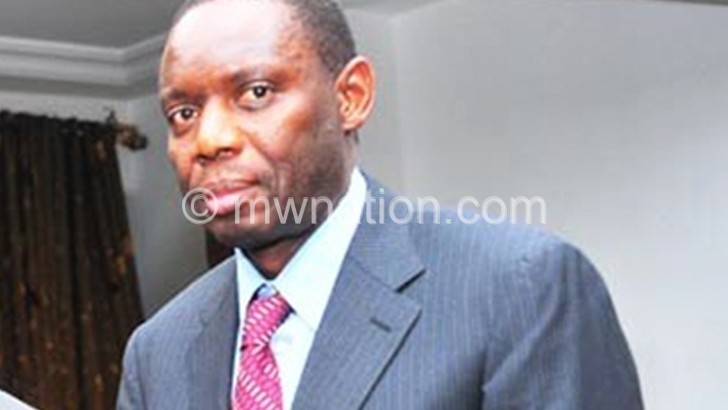Re-engage donors, IMF tells Malawi
The International Monetary Fund (IMF) has advised Malawi to re-engage donors for financing, especially on the development side to sustain macro-economic stability.
In his concluding remarks at the two-day Stakeholder Conference on the Extended Credit Facility (ECF) in Lilongwe yesterday, IMF Deputy Director for the African Department, Michael Atingi-Ego, said while Malawi is on course in terms of economic management, the country is not there yet.
Development partners withheld their direct budget support to Malawi in October 2013 amid concerns of poor public finance management following revelations of the plunder of public resources at Capital Hill, widely known as Cashgate.

In his remarks, Atingi-Ego said: “Malawi is at moderate risk of debt distress. So, it means that the capacity of the country to borrow substantially to address all the infrastructural needs will be constrained. It means we have to sequence and finance infrastructure developments within the available resource envelope.”
He said it was disappointing that while Malawi’s revenue to gross domestic product (GDP) ratio was above the minimum in the sub-Saharan Africa region, the bulk of it goes towards repaying debt, a situation that calls for public expenditure review.
Going forward, he advised that in the next programme, Malawi should focus on inclusive growth and poverty reduction with emphasis on structural reforms and financing.
According to the IMF, Malawi has a limit of 138.8 million Special Drawing Rights—a currency used by the IMF—of which approval from the Fund will depend on the balance of payment needs, the strength of the programmes, the outstanding credit with the IMF and the capacity of the country to repay the Fund.
Malawi is, however, yet to request the IMF for another three-year credit facility stabilisation programme.
Commenting on what the new programme means to Malawi, Malawi Confederation of Chambers of Commerce and Industry (MCCCI) chief executive officer Chancellor Kaferapanjira said going on to the next programme is an indication that the economy is not stable and still in need of a stabilisation project.
He said: “If we had achieved stability, we would not go on a stabilisation programme. But what is important is that we are being involved in the process that will lead to an extremely important decision.
“There were a lot of targets set in the 2012 ECF which were not realistic and we did not know some of them because the process was not transparent. But this time we will influence what is in the agreement so that we hold government accountable.”
However, Catholic University of Malawi head of economics department, Gilbert Kachamba, said the credit facility has not been developmental.
He argued that Malawi has the potential to attain significant growth without loans which are only a burden to repay.
Said Kachamba: “ECF programmes in Malawi have not been that effective when it comes to development. We are busy getting these loans, but the impact is so insignificant and these are the loans that will be paid back. We can manage to achieve macroeconomic stabilisation without some of these loans.”
He said there is need for the country to only get loans that will help in addressing the supply side constraints, hence achieve faster growth and development.
Government has since said the negotiations of the next programme will centre on the support of the implementation of the third Malawi Growth and Development Strategy (III) which is yet to be implemented. n





